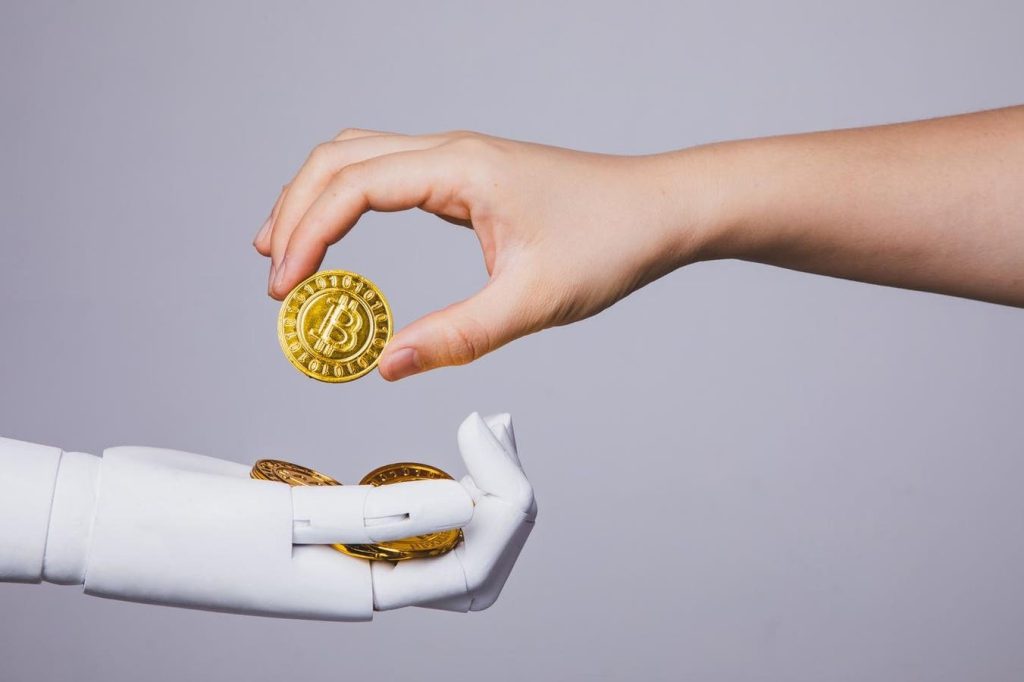The Transformative Potential and Perilous Pitfalls of AI-Driven Cryptocurrencies
The fusion of artificial intelligence (AI) and cryptocurrencies is poised to revolutionize the digital economy, promising unprecedented speed, automation, and innovation in financial services. From AI-powered Bitcoin mining and predictive analytics to decentralized AI marketplaces and autonomous financial agents, the possibilities seem limitless. However, this nascent technology also carries significant risks, raising urgent questions about fairness, oversight, and security. If left unchecked, this convergence could exacerbate existing inequalities, create regulatory blind spots, and introduce new systemic risks to the global financial system. Navigating this uncharted territory requires careful consideration of the ethical, regulatory, and societal implications.
AI cryptocurrencies, digital assets powering platforms that integrate AI and blockchain technology, are transforming various aspects of the financial landscape. AI algorithms optimize blockchain operations, enhancing efficiency and security through automated fraud detection and predictive analytics. Decentralized AI marketplaces, like SingularityNET, empower developers to create, share, and monetize AI services without centralized control. Autonomous financial agents execute smart contracts, trade assets, and automate decision-making in decentralized finance (DeFi). Furthermore, platforms like Bittensor leverage blockchain infrastructure to facilitate the training, sharing, and deployment of machine learning models on a larger scale, fostering open collaboration and democratizing access to computational resources. While proponents tout the potential of AI to make blockchain applications more efficient, accessible, and scalable, the lack of transparency and accountability raises concerns about potential risks to consumers, investors, and the broader economy. These risks include the amplification of existing Web 2.0 issues such as hyper-centralization, privacy violations, and data insecurity.
The concept of decentralized AI (deAI) challenges the prevailing centralized model of AI development, where corporations control the training, deployment, and monetization of AI models. DeAI utilizes blockchain or peer-to-peer networks to distribute these processes, aiming to enhance transparency and data privacy. However, critical questions remain about the potential for token-based governance in deAI to recreate existing power imbalances and the accountability mechanisms in place when systems malfunction. These questions highlight the complex interplay between AI and crypto, emphasizing the need for careful consideration of their combined impact on the future of both industries.
The ethical implications of AI in crypto are paramount. AI algorithms are susceptible to biases present in the training data and the incentives of their programmers. In the fast-paced, financially driven crypto world, ethical considerations often take a backseat. This raises concerns about the potential for AI-driven blockchain systems to perpetuate existing biases, exclude marginalized communities, and exacerbate financial inequalities. Ensuring fairness and equity requires addressing these biases and implementing mechanisms for audit and public oversight of AI algorithms used in DeFi lending and credit scoring.
Accessibility is another critical concern. While decentralized AI promises to democratize access to advanced machine learning tools, the complexity of AI-powered crypto projects may create barriers for average users. Without comprehensive educational efforts, these technologies could primarily benefit institutional investors and tech elites, widening the digital divide. It is essential to ensure that retail investors and their advisors are adequately informed about the risks associated with AI-driven decision-making in crypto.
Data privacy and security are also at stake. While blockchain is often touted as a secure alternative to traditional financial systems, the integration of AI introduces new vulnerabilities. AI models require vast amounts of data, raising concerns about the collection and monetization of user data without consent. Protecting user privacy necessitates robust safeguards and mechanisms to ensure compliance with data privacy laws like GDPR and CCPA.
The convergence of AI and crypto presents a double-edged sword for investors, innovators, and consumers. While the potential benefits, such as increased financial empowerment, expanded access to AI tools, and enhanced security, are significant, the risks of market instability, exploitation, and deepened inequalities cannot be ignored. Striking a balance between fostering innovation and protecting market participants requires a collaborative effort from policymakers, regulators, and industry leaders. The crucial question is whether this technology will promote financial inclusion and economic opportunity or exacerbate wealth concentration and systemic risk. Proactive measures are essential to steer this transformative technology towards a more equitable and sustainable future.
Congress has a critical role to play in shaping the future of AI and crypto. Reactive enforcement is insufficient; proactive legislation is needed to address the unique challenges posed by this convergence. Key policy questions include the classification of AI-powered blockchain projects under existing securities laws, the regulation of AI-driven trading and lending algorithms, and the establishment of AI transparency and ethical auditing standards. Addressing these questions will require a forward-thinking approach that balances innovation with consumer protection and market stability. The convergence of AI and crypto presents a pivotal moment in the evolution of the digital economy. The decisions made today will determine whether this transformation leads to a more inclusive and equitable financial system or exacerbates existing inequalities and introduces new forms of systemic risk.

